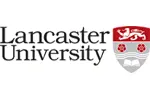World leading academics from across Lancaster's Faculty of Humanities, Arts and Social Sciences share the latest developments in this dynamic field.
What are the key causes of environmental change? What is stopping nations from collectively shaping a more sustainable relationship between people and the environment? Our innovative master’s course offers fresh thinking on how to address some of the biggest challenges of our times, equipping you to play a transformative role in finding viable solutions.
Why Lancaster?
- Join a diverse, interdisciplinary team with world-leading environmental expertise across the arts, humanities and social sciences
- Develop a practical and future-orientated understanding of how to tackle environmental challenges and contribute to possible solutions
- Learn global leadership skills that equip you to participate in challenging negotiations on local, national and international scales
- Work collaboratively with students across our suite of master’s courses to build your own professional network
- Be inspired by our gorgeous green campus, close to historic Lancaster and spectacular coastal and mountain scenery
- Prepare for roles with national and international organisations such as environmental think tanks and protection agencies
Tackling climate catastrophe
Our master’s in Global Sustainability and Environmental Futures analyses the relationship between people and the environment. Using critical concepts, theories and practices drawn from across the arts, humanities, and social and natural sciences, you’ll learn tools that will enable you to unpick the complexity of human and non-human interests in environmental futures.
You’ll engage with educational, scientific, legal and regulatory approaches to dealing with global issues such as violences, sites of trauma and conflict, inequalities, poverty and environmental injustice. You'll explore the past, present and future of environmental change, including topics such as global environmental politics, and environmental crisis and societal change.
Through a variety of modules, you’ll be encouraged to draw on different disciplines and consider issues from the perspectives of diverse stakeholders and seek context-specific solutions.
Collaboration in practice
The School of Global Affairs offers two master’s degrees that share a common ethos and course structure. Each provides distinctive yet interconnected opportunities to develop the skills, knowledge, relationships and partnerships needed to meet the global challenges of our time.
You’ll take part in subject-specific modules designed to build in-depth knowledge of global sustainability and environmental challenges and assess, engage in and create responses to real world issues.
In studio modules you’ll work on live community briefs, connecting Lancaster’s research with both local environments and global issues.
On leadership modules, you’ll join with students from other master’s cohorts on projects and use generative, collaborative thinking to create innovative solutions that are relevant to diverse external stakeholders.
Working with students from our other cohorts will bring you into contact with those specialising in global health and medical humanities. You’ll experience the benefits that harnessing skills and knowledge from diverse groups and subjects can bring.
You’ll have the opportunity to tailor your final project to draw on your academic, personal or professional experience. A range of innovative assessment types will give you the freedom to represent your chosen topic creatively and persuasively.
Become a leader in change
With its dedicated leadership module, this course prepares you for a future as a collaborative change-maker. The course challenges traditional views of leadership. It adopts an understanding of inclusive leadership that is grounded in critical, creative and collaborative skills.
By taking this interdisciplinary approach and engaging in the discourses of leadership ethics, you will be equipped to bring about positive change in your chosen field.
You will benefit from Lancaster’s rich, collaborative academic environment, being able to participate actively in research events and opportunities provided by the Faculty of Humanities, Arts and Social Sciences.
Flexible study options
Study alongside work and other commitments by taking this course on a part-time basis. Running over two years, you take a selection of modules each year.
We will liaise with you over your choice of optional modules and your schedule, so that you can successfully balance your work and other commitments alongside the master’s programme.









